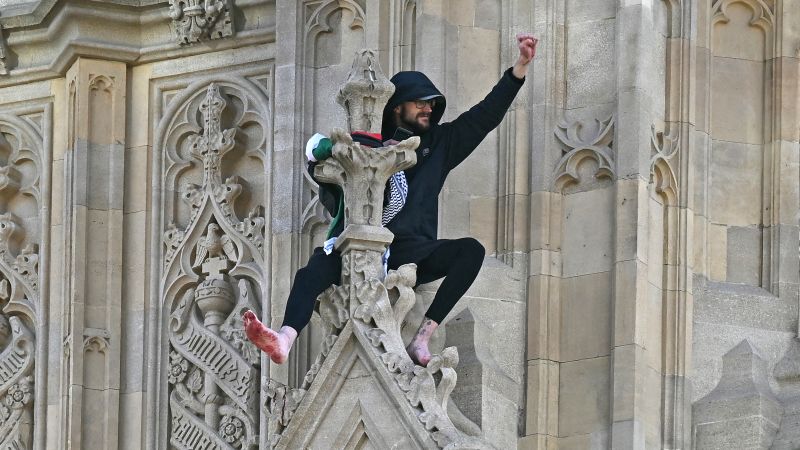Suspect said he knew why he was being arrested after Trump golf club incident, officials say

Cellphone records associated with the man accused of trying to assassinate Donald Trump at his golf course in Florida on Sunday suggest he had been lying in wait nearby for nearly 12 hours before he was fired on by a Secret Service agent protecting the former president.
Then, after authorities captured him as he made his hasty retreat, he allegedly told them he knew exactly why they were arresting him.
Those details surfaced in a criminal complaint that was unsealed after the man alleged to have plotted the attempt on Trump’s life appeared in front of a preliminary federal court hearing Monday.
The new records alleged that the suspect in the case, 58-year-old Ryan Wesley Routh, had previously asked his social media followers to contact him at a specific cellphone number. Investigators later determined that particular number was located at or near a tree line along Trump International golf club in West Palm Beach, Florida, from about 1.59am to 1.31pm on Sunday, an FBI agent wrote in the unsealed papers.
At the end of that time frame, a Secret Service agent walking the perimeter of the course while Trump golfed there noticed “what appeared to be a rifle poking out of the tree line”, the complaint said.
The agent drew a gun and fired in the direction of the rifle. A bystander then saw a man later identified as Routh emerge from the tree line and flee in a Nissan SUV.
Authorities said they soon found an SKS-style rifle equipped with a scope, a digital camera and at least three bags – including one containing food – in the area from which Routh fled. The serial number on the 7.62mm rifle had been “obliterated and [was] unreadable”, the FBI agent who wrote the complaint said.
Deputies from two local sheriff’s offices later stopped Routh as he speeded northbound on Interstate 95 at about 2.15pm. “Routh was asked if he knew why he was being stopped,” the complaint said. “He responded in the affirmative.”
The complaint noted that the license plate on the Nissan was not meant to be on the vehicle. Rather, it was registered to a white Ford truck that had been reported stolen.
Authorities did not immediately charge Routh with attempting to assassinate the president. Instead, they charged him with possessing a firearm despite having prior felony conviction prohibiting him from legally doing so – as well as with illicitly having a gun with an obliterated serial.
The first of those charges stemmed from Routh’s having been convicted in Greensboro, North Carolina, in 2002 of illegally possessing what a media report referred to at the time as a “fully automatic machine gun”. According to the Greensboro News & Record, in that instance Routh barricaded himself at his roofing company during a three-hour standoff before he led police on a car chase and ultimately surrendered.
after newsletter promotion
A second felony conviction mentioned in Monday’s criminal complaint was for multiple counts of possession of stolen goods.
The complaint does not address what may have motivated Routh to stick the barrel of a rifle into Trump’s golf course while the Republican presidential candidate played there. Routh’s son, Oran, told the Guardian on Sunday that Ukraine’s cause in its war against Russia was dear to him.
Trump, as he seeks a second presidency in November, recently declined to answer a question at a televised debate about whether he wanted Ukraine to win that war, renewing fears that he might suspend American military aid to Ukrainian troops if voters return him to the White House. The former president also successfully lobbied lawmakers who are loyal to him to delay authorizing additional military support to Ukraine for months earlier this year.
Routh’s hearing on Monday lasted eight minutes and saw federal prosecutors announce the initial charges against him. He could face 15 years in prison if convicted of possessing a firearm as a felon and five years in connection with the other charge.
Trump survived a separate assassination attempt on 13 July at a political rally in Pennsylvania. The gunman shot one spectator dead and badly wounded two other rallygoers before he was killed by Secret Service snipers.
Related
5 Things I Never Play Golf Without: David Dusek
Our 11-handicap equipment writer always brings his favorite divot repair tool, a portable speaker and some high-tech gear to the course.As long as the weather i
Donald Trump’s golf course wrecked by pro-Palestine protesters
Pro-Palestinian protesters have vandalized parts of U.S. President Donald Trump's golf course in Scotland in response to his proposal for the reconstruction of
Man holding Palestinian flag scales London’s Big Ben hours after…
CNN — Emergency services were called to London’s Palace of Westminster on Saturday a
EPD: Drunk driver parked car on golf course
EVANSVILLE, Ind. (WFIE) - Evansville police say they arrested a man after finding him drunk in his car that was parked on a golf course.Officers say they were c











